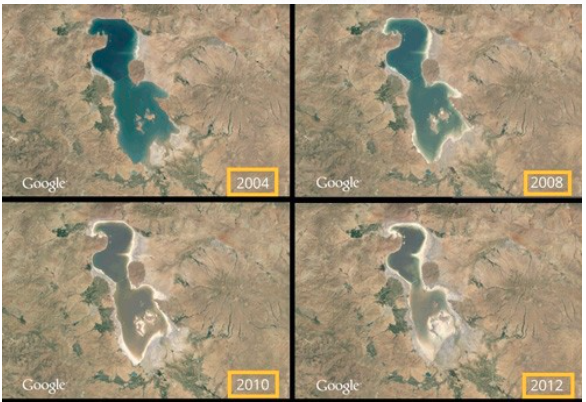Water research program to renew Lake Urmia in Iran

A joint research program between the University of Melbourne and Sharif University of Technology in Iran will focus on finding practical solutions to the urgent issues facing the Lake Urmia basin, a national priority for Iran.
In the late 1990s, Lake Urmia, in north-west Iran, was the largest salt-water lake in the Middle East.
Since then it has shrunk substantially, creating concerns for a growing population and the regional environment.
The Lake Urmia basin has suffered from a decrease in surface and groundwater levels, poor water management practices and an increased water demand from irrigators.
In a new partnership between the two universities, research programs will focus on finding solutions for ecological renewal, agriculture and land management.
University of Melbourne Melbourne School of Engineering Professor Peter Scales said the University team, along with key partners in the private, government and research sectors from Australia, will draw on their extensive experience in water reform.
“The challenges faced in the Lake Urmia Basin match those encountered in water planning for the Murray-Darling Basin over the last 25 years," Professor Scales said.
"We know that lessons from a long history of successful water reform in the Murray-Darling Basin offers valuable lessons for planning in the Lake Urmia and other river basins across Iran.
“Similarities of climate and projected climate trends as well as the dominance of irrigation water withdrawals are key common elements. These insights will allow us to offer practical help and sustainable and productive water management programs.”
University of Melbourne Pro Vice-Chancellor (Campus and Global Development) Tom Kvan said the program will improve water policy and planning, provide sustainable urban water systems, help mitigate water pollution and deliver a social, health and environmental benefits to the wider population.
“As a University, we are committed to partnerships that will also enable our capacity building and collaborations through mutually beneficial research," Professor Kvan said.
"This will have advantages for building innovation skills for students and staff alike.
“Working with Sharif University of Technology and the other partners in this program will enhance knowledge sharing and benchmarking of standards with a range of international networks. The Lake Urmia restoration program is fully supported by the Iranian government and will help to align the water needs of the basin by balancing water availability with the needs for the environment and food and energy security."